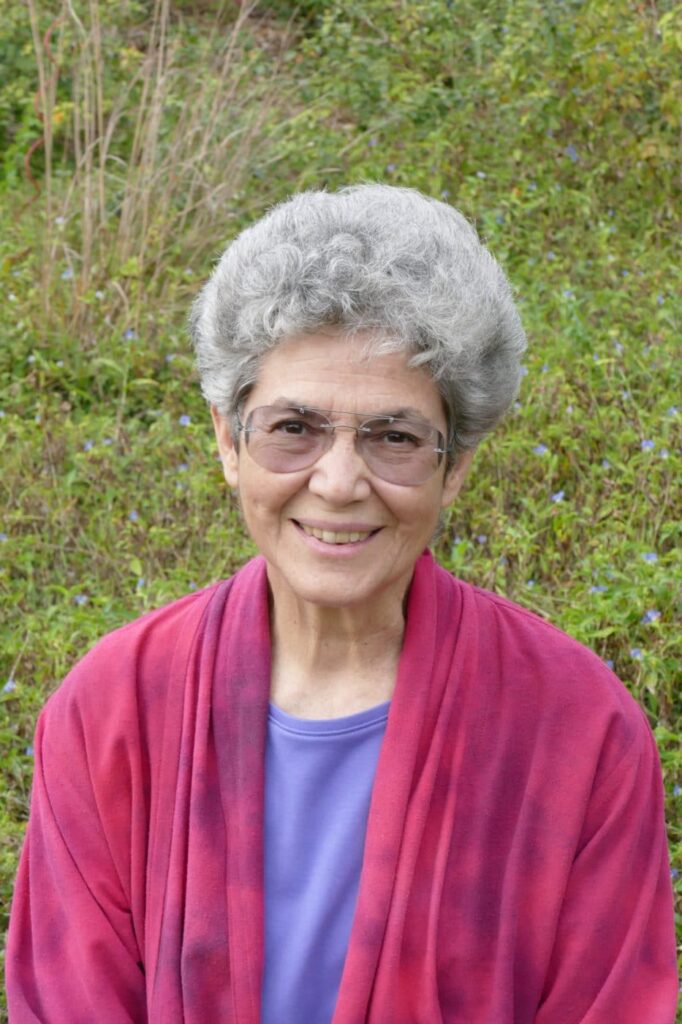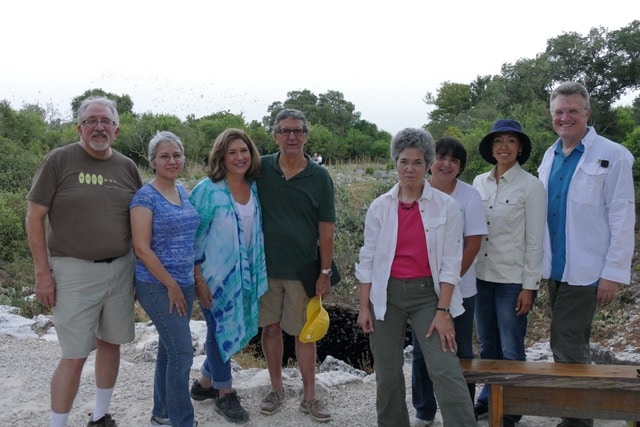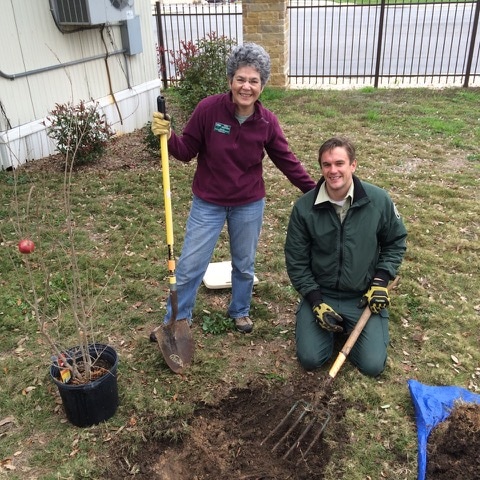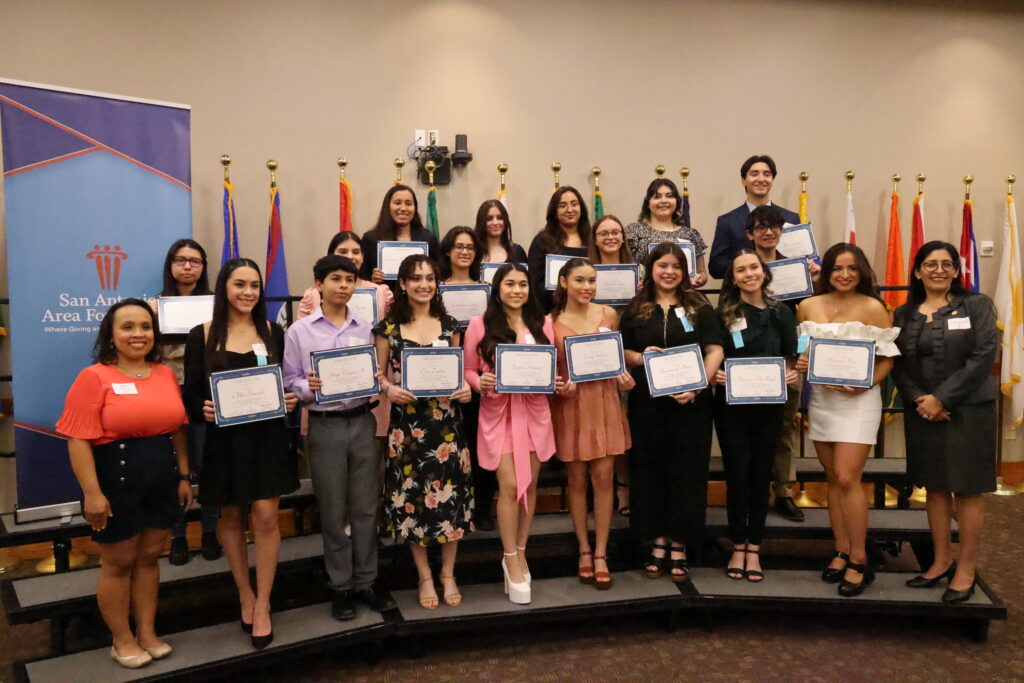It’s a quiet Thursday afternoon when a bespectacled Lissa Martinez, an investor and entrepreneur, appears on my computer screen. She’s in her home office. A poster about tree planting is hanging on a partition behind her.

Martinez, who served for two terms on the Board of Directors of the San Antonio Area Foundation (2000-2005), seems to exemplify how educational philanthropy can be transformational.
“I do feel strongly [that] education is one of our huge change agents,” said Martinez, a graduate of Thomas Jefferson High School.
“It was a Texas philanthropist with deep pockets that paid for most of my education. I’m a McDermott scholar from [Massachusetts Institute of Technology] and he and his family were the founders of Texas Instruments,” she added, then affirming: “So yes, I think philanthropy is important.”
Subsequent scholarships made it possible for Martinez to earn both an undergraduate degree in Ocean Engineering and a graduate diploma in Technology and Policy from MIT, later enjoying a successful career as an engineer in shipping-related pollution control and health and safety.
In 1996, after 25 years away from her hometown, Martinez returned to the Alamo City with her husband, Brian Hughes, and their two children. About this time, she had been a volunteer and donor for MIT’s alumni program, which is where she learned in great detail how scholarships work. She and her husband established two need-based scholarships, which were designed for undergraduate MIT students whose families couldn’t afford to contribute to their education.
“One of the things I learned about scholarships is that they need to be replenished,” she said. “If they’re not replenished, they can eventually run dry.”
Case in point: The Area Foundation’s Francisca Hernandez Eschauzier Scholarship Fund, which Martinez had originally received in 1972. The Area Foundation currently maintains approximately 100 scholarship funds.
“They were about to close it so my husband and I ended up offering to become the new donors for that scholarship,” she said.
Their gift, and Martinez’s connection to it, drew the attention of the Area Foundation’s leadership, and soon after she was invited to join the board.
“[It was] probably the hardest-working nonprofit board I’ve ever worked on,” she recalled. “I suppose you could just sit there and show up for meetings, but that isn’t what happened. You got put to work.”
During her tenure, Martinez chaired the technology and education community advisory committees.
“I look to that [Area Foundation] board now and I expect them all to be clear-headed thinkers on behalf of the San Antonio community,” she said.
Indeed, the next generation of board members are still rolling up their sleeves today.

Observing the foundation’s “whistle-clean grants process” offered valuable lessons, and in the late 90s, though the business of giving remained the same, Martinez had a front-row seat to see changes to the traditional philanthropy model.
“[The old guard] expected that the people who organized the [fundraising galas] were all these women with infinite amounts of time – and that generation had passed or had retired,” she recalled. “And the women who were available, they had jobs.”
Martinez respected how the Area Foundation hired a staff in order to better try to accomplish its mission.
“I thought that was kind of the direction we needed to go, because San Antonio has been so poor for so long, I can’t remember when it wasn’t poor,” she said. “Until we change something more fundamental, there will always be inequality in San Antonio.”
Focusing her energy on the local front seemed to be right where she needed to be.
“We still operate on a model where a family is expected to support their [child’s education], but if you can’t, you just got into this lottery,” she said.
When a student receives a scholarship, there’s a message attached that transcends the money itself.
“Even though the Eschauzier scholarship wasn’t the largest scholarship that I had, it was the first signal to me that somebody outside my school or family wanted me to succeed and thought I was worth an investment in real money, which is all that mattered at the time,” she shared.
It could be said that her dedication to nurturing and actively investing in San Antonio’s innovation community is about paying it forward.

“I would love it if everybody who got this [Eschauzier] scholarship would grow up and include us in their philanthropy,” Martinez said. “A thousand bucks can make a difference in a kid’s outlook.”
Right now, she’s keeping a watchful eye on programs like Alamo Promise, which the Area Foundation helped launch.
“[Alamo Promise] is as important as a big ol’ scholarship to MIT,” she said, comparing its potential to Canada’s subsidized college program. “All my life, I’ve always kind of been the exception and that’s wonderful, but it’s hard to live up to. It would be great if there were 50 of me out there.”
One thing Martinez has seen scholarships do effectively is take people beyond what they think they have to settle for and allow them to have the aspiration they truly want.
“As a former recipient and now as a donor, I think this is an appropriate way for me to help pay it forward,” she said.
Are you interested or do you know someone who may be interested in contributing to one of our scholarship funds or perhaps even open up one of their own? We’d be happy to give you all the information you need. Go here to get started and we’ll be in touch. Thank you!
Jade Esteban Estrada is a San Antonio-based writer and part of the San Antonio Area Foundation Marketing and Communications Department’s Storytelling Ambassador Contributor Network.

